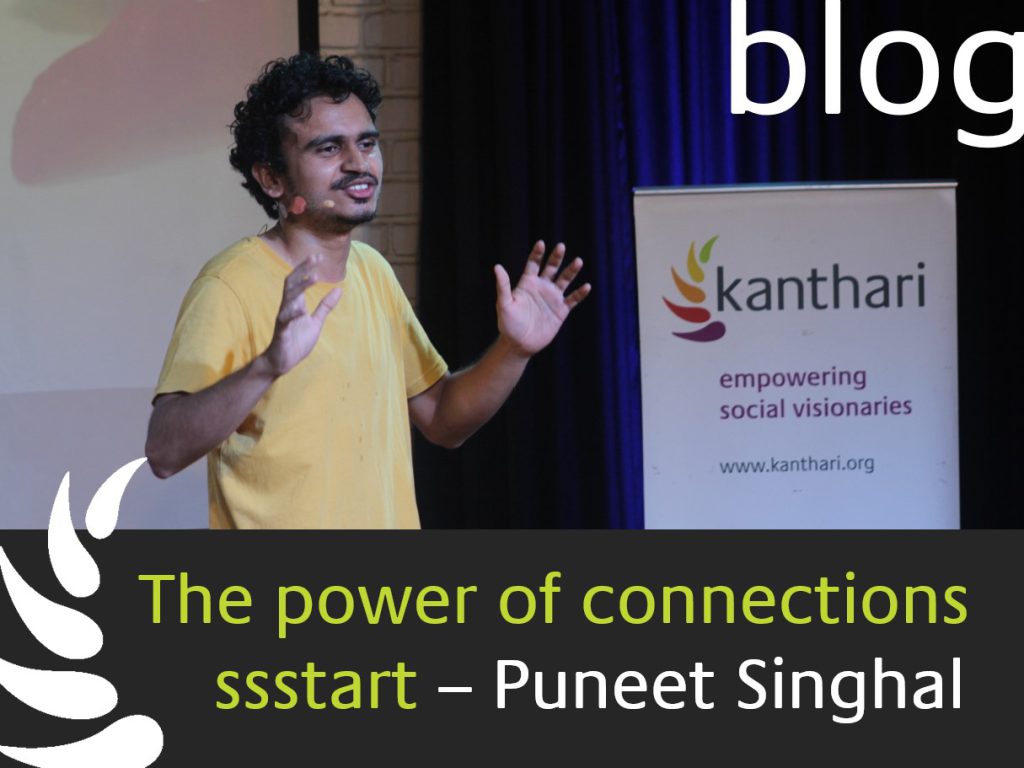Part One
By Chacko Jacob
My first encounter with a stammerer happened when I was 14. I accompanied my parents and siblings to a religious gathering of families. Spaced out and biding my time until we had to leave, my ears perked up when I overheard the beautiful young woman to my right speaking to another attendee. Every word seemed to crackle and pop; the sentences took on a form I had never heard before. What I found more interesting than the woman’s colourful communication was the listener’s patient approach to the conversation. I wanted more than anything to take the older lady’s place, she had inadvertently taught me a valuable lesson in communication, but unfortunately, I had the social skills of a potato as a teenager and never made a move.
Fast forward 16 years, I met Puneet Singh, a stammerer who founded ssstart, which aims to normalize speech disorders and promote acceptance of different styles of communication. I caught up with him today, a month after his graduation from the 2021 kanthari course. He was in good spirits as he described how he was reaping what he sowed in the initial difficult three months of his start-up phase and even earlier than that. To Puneet’s credit, he is not averse to putting himself out there to connect and explore possibilities of collaboration with individuals and organizations related to his field. The years of reaching out to others are now showing some remarkable results.

Through his connection with the Freedom Employability Academy (FEA), Puneet is about to sign a one-year agreement with a US-based Indian couple to make use of their space in Dwarka, Delhi as the ssstart center, completely free of charge. Even luckier is the fact that a segment of his beneficiaries, youth from slums, is right around the corner. Puneet, himself a resident of a slum, has already approached the younger residents there, confirmed the interest of at least six 12-13-year-olds, and expects around 20 more to join his proposed communication workshops at the center. Easing the parents’ suspicions that there is only useless naach-gaana (singing and dancing) going on, one of the owners of the building is also setting up a mathematics program. Currently, the space is undergoing a transformation, with new colours and décor, and even a skate-park! With such attractive features, it is not hard to imagine the center teeming with people from all walks of life. They may come in for algebra or the kick-flips, but they will leave as better communicators. What is special about the ongoing revamping of the space, is that the volunteers who help to make this possible are from his very first batch of participants.
Through the same organization FEA, ssstart was able to engage 17 urban youngsters in their very first batch of communication workshops. Among the 17 were also two or three who stammer or have other speech disorders; this gave a representation of a real-life setting. The need for interaction between people with and without speech disorders is a key gap that Puneet identified early on. Just awareness among the general population that speech disorders exist is not enough. According to ssstart, building empathy and patience is the next concrete step in normalizing dis-fluency.
The batch was overall a curious one. They met online twice a week. Initially, they had a lot of questions about Puneet’s life journey, including how he came to accept his stammering, form his organization, build a large online following etc. Then they shared about their own lives and their challenges. Many of the girls were especially interested in learning how to say no. No to the traditional society around them, to their parents’ pre-set plans of how to live their lives, and no to other uncomfortable situations. ssstart was able to set up real-life situations and role-play where the participants’ sole purpose was to find a way to say no. The batch was also lucky to meet up in person at Lodhi gardens, for some much-needed offline communication.
His second batch consists of youngsters from rural areas, which is presenting a big challenge, as they are not able to open up so easily. But ssstart continues to adapt; it remains to be seen how it will play out.
In the span of a month, a lot has happened and that is cause for celebration. That certainly calls for a party. Perhaps a “listening party”?
ssstart is collaborating with Marva Shand-McIntosh, the founder of I Love to Listen Day (May 16th). Puneet says, “Listening is one of the most humane activities we can do to show the other person how important they are to us. Dis-fluency, communication disorders, and speaking disabilities, like stammering, give us [a] unique opportunity to take a step back and listen in an empathetic and patient manner.” At the listening party, two people get matched up, and have ample time to share their life stories with each other, a host makes sure that a safe space is ensured, and no bullying or harassment takes place. Sign up here to practice the most undervalued aspect of communication.
The start-up phase can bring a lot of detractors with it, it’s truly a joy when someone among your friends/family joins the cause. Puneet’s friend Chinmay Panigrahi from high school, also a stammerer is a lawyer by profession. They were in touch on and off, but when Chinmay saw Puneet’s posts about ssstart on social media, he was sold immediately. Looking down on by everyone from potential clients to the judges, Chinmay is poised perfectly to advocate for normalizing dis-fluency in his profession and hence has a deep intrinsic motivation to join ssstart’s cause.
ssstart is without a doubt starting to make a loud noise. Get on board and listen. With patience, and empathy.
And… stay tuned on the kanthari blog space as part 2 will follow soon…



